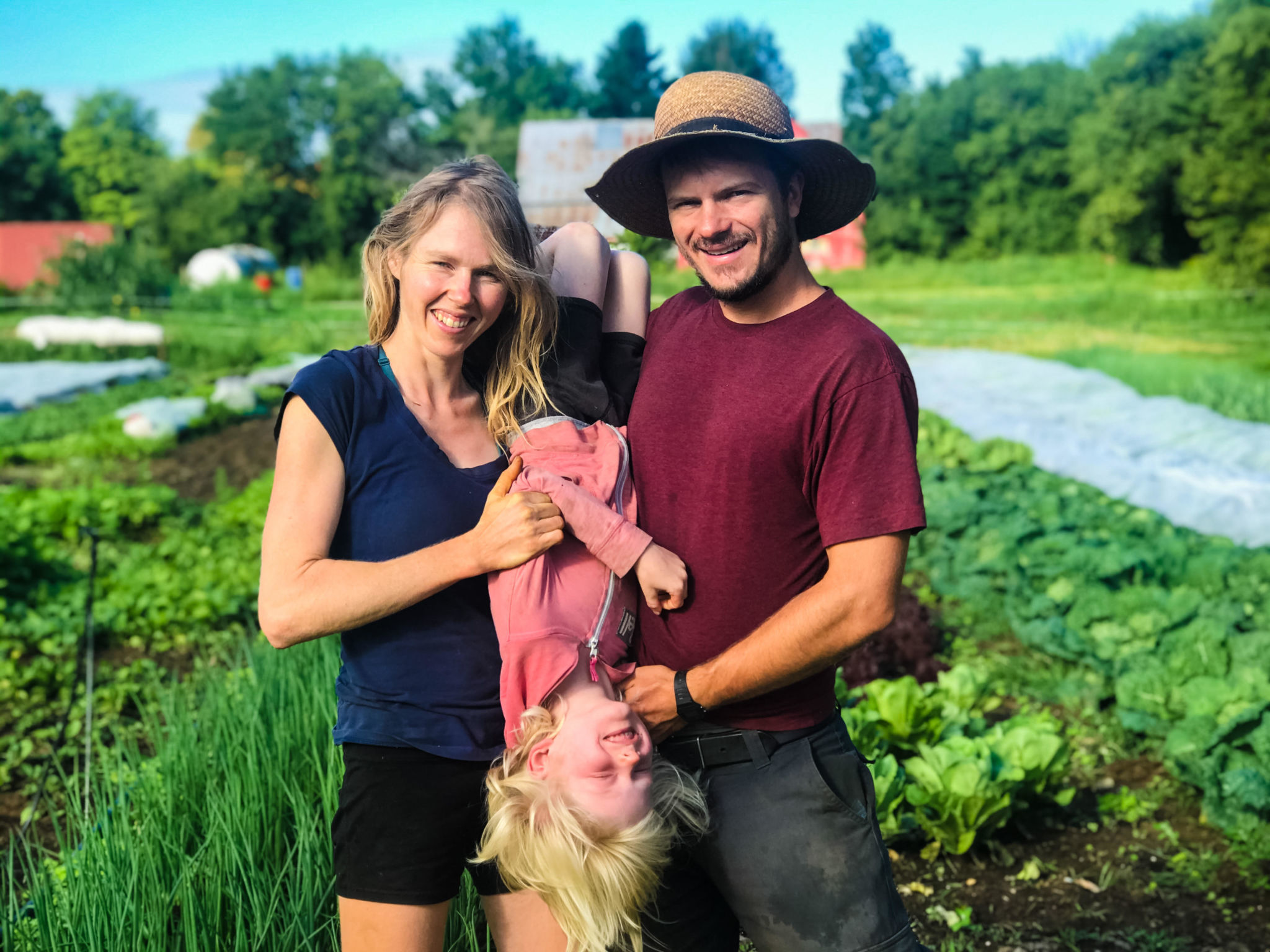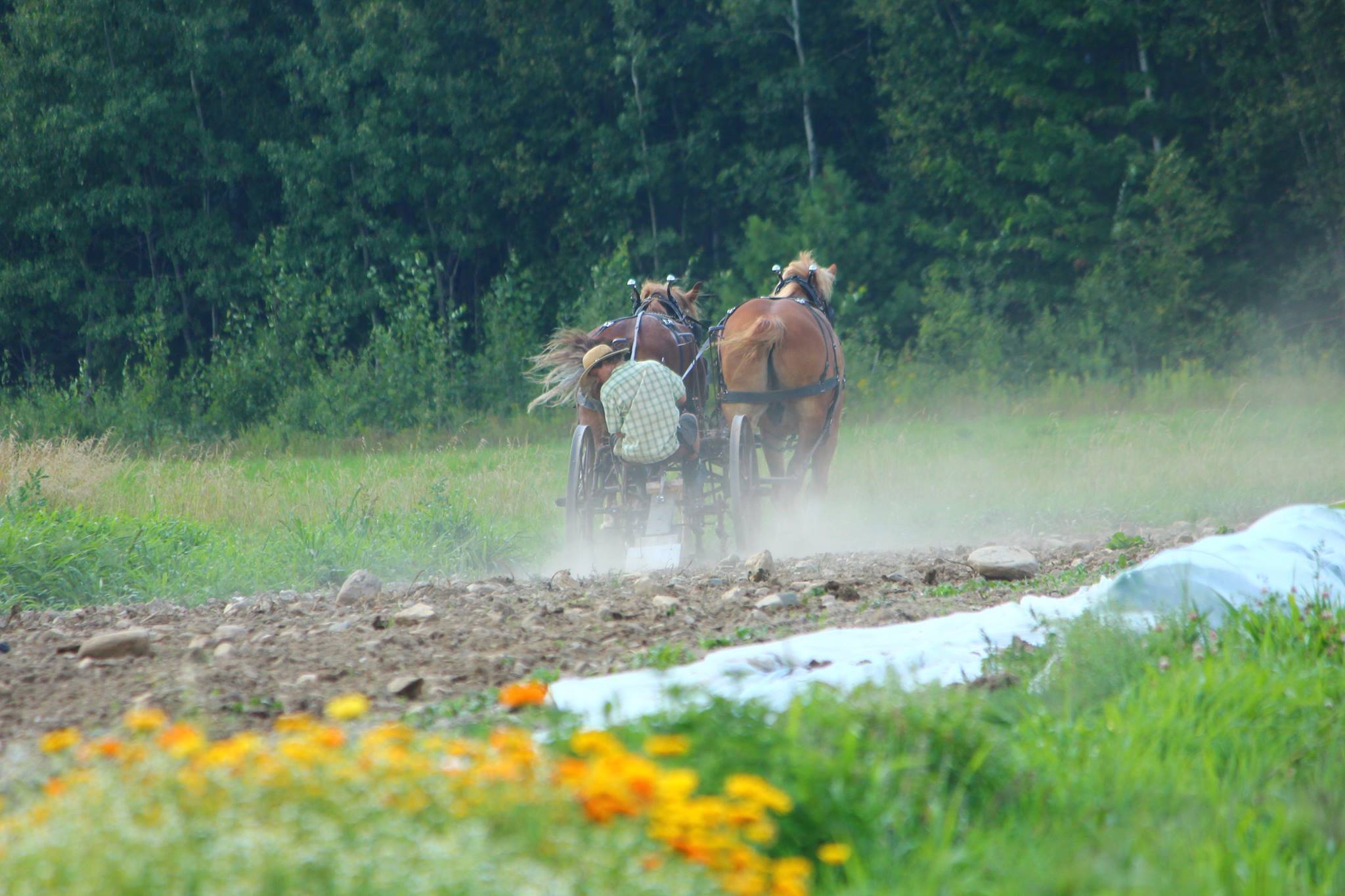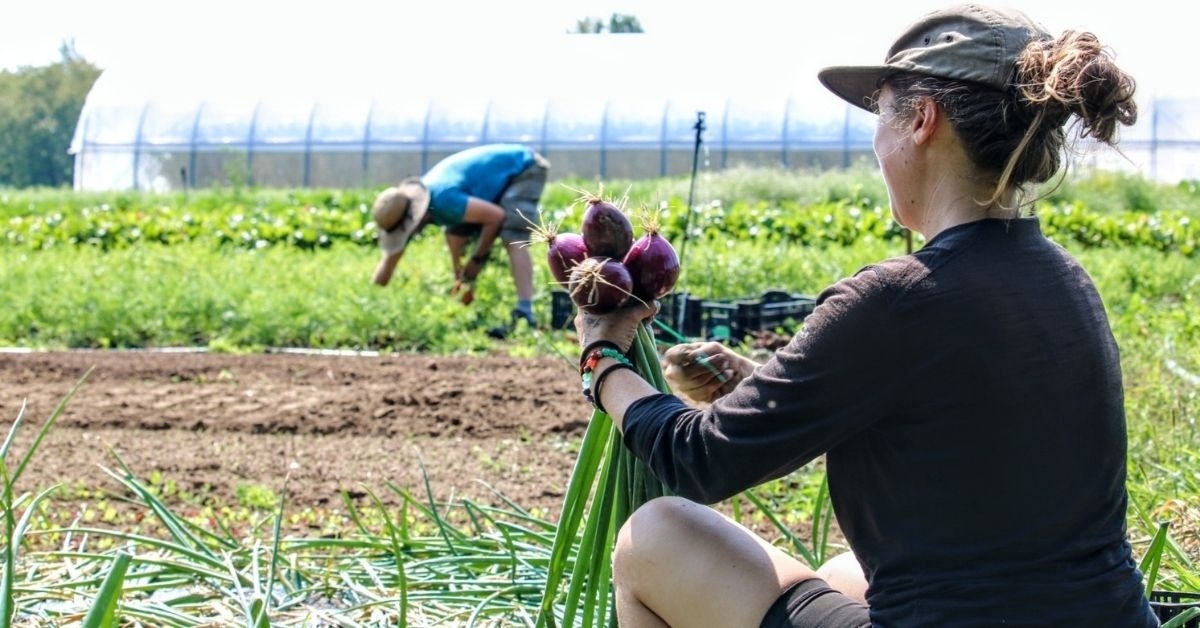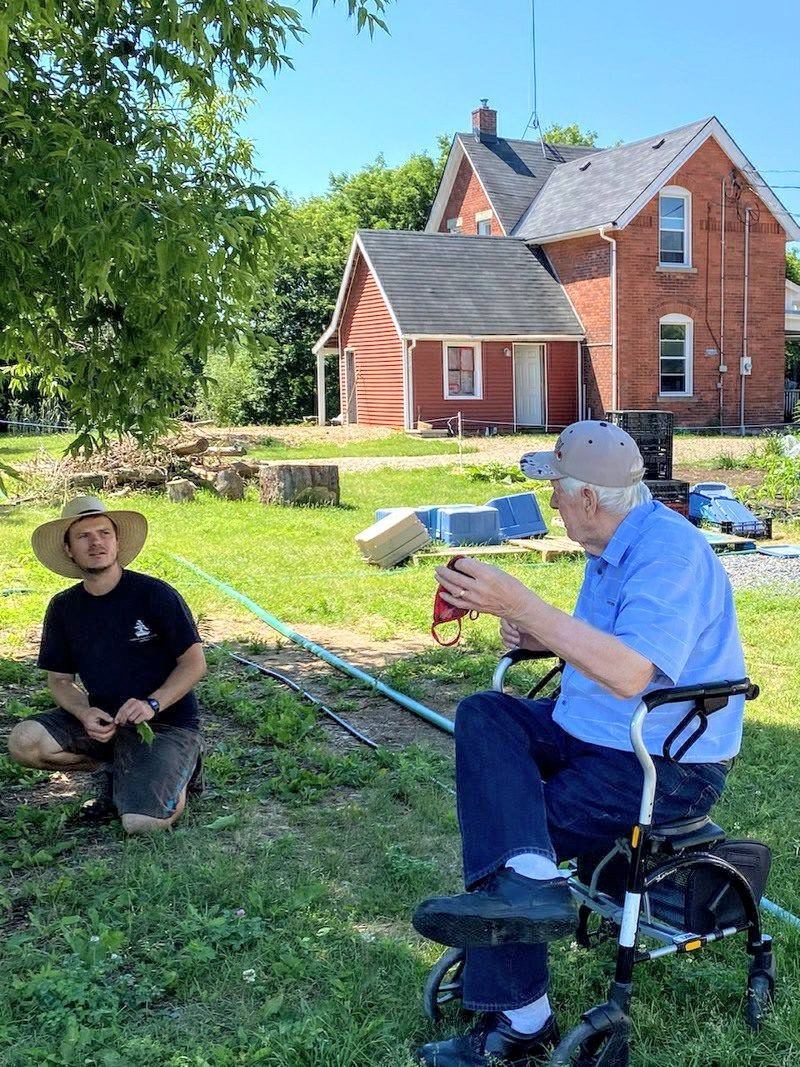Author: Jonathan Bruderlein, Co-founder of Farm Fresh

My wife, Jolianne, and I manage an NCC farm known as Farm Fresh. Despite not having farming in our backgrounds, our journey to this point is quite fascinating. My interest in farming stemmed from a desire to positively impact the environment. I wanted my work to make a real difference for our planet. I recommend to add the name, here.
Food production and the environment
During my time at McGill University, I volunteered at an organic food co-op and, by my second semester, had started working on farms. As I was figuring out what I wanted to major in, I stumbled on the Food Production and Environment program. It was very well aligned with what I wanted to accomplish, so I transferred to the agricultural campus and dove into agriculture.

Farming requires wearing many hats — it’s not just about growing food. It’s also about running a business and managing finances and employees. During our final year of university, Jolianne and I built a business plan for our future farm. When we graduated, we ran with our plan and started our first farm in Quebec’s Eastern Townships. It was an incubator farm, where people can rent a small plot and access farming equipment and greenhouses. We farmed there for about seven years and then moved on to rent a couple more farms.
A change in direction
At this point, we were ready to take a break from farming. We let go of our lease, sold our equipment, and kept a shipping container filled with items we would need to start our next farm. We turned our delivery truck into a camper and set off for a family adventure through the United States and Canada with our three-year-old son.

What we thought would be a one-year sabbatical turned into a three-year sabbatical. Along that journey, we realized that we still wanted to farm, but also wanted to enjoy being close to the city. A farmer friend was working at the NCC at the time and told us about farming opportunities in the Greenbelt. It was a natural next step for our family. We looked at about 10 different properties and found our farm on Ramsayville Road in March 2020.
Building our community
We spent a good amount of time getting the farm ready and opened our farm store that August. By winter, we had 225 families who were signed up for our community-supported agriculture (CSA) program, which was exciting. This past year, we have grown and sold more vegetables than we had in seven years at our old farm!
We’re offering a fall and early winter CSA starting in November. It will include carrots, beets, cabbage, squash, potatoes, onions, kale and more!

Food can feed the body, but farming can feed the soul and the mind in a time when we’re increasingly living a digital existence. People love that they can stop by our farm and see the land where their vegetables came from. At the end of September, we invited the public to our carrot harvest party, where we all got together to harvest carrots — with live music and a food truck.
In August, we held a wellness month in which we hosted a variety of activities throughout each week of the month, including a sourdough pizza workshop, free yoga, canning demonstrations and a wild foraging workshop.
A little bit of old and a little bit of new
We feel very welcome in our new community. We actually met Ed Ramsay, who was born here. He turned 90 this year and, every time his kids are in town, they come by and bring him for a visit. We love hearing his stories of what it was like to grow up on the farm.
The barn on our farm was originally built in the late 1800s to raise livestock. We’ve partnered with the NCC to rehabilitate the barn to get it back into action. Plans include cold rooms, a farm stand and some workspace. Our new community has really shown up to help us make these changes come to life.
Large-scale agriculture is very efficient, but we want to show people that small local farms have a purpose: bringing community together and helping them connect to the land that feeds us.
Farms in the Greenbelt are a symbol of Canada’s rural traditions, and they provide an example of how to practise viable and diverse agriculture in a near-urban setting.

